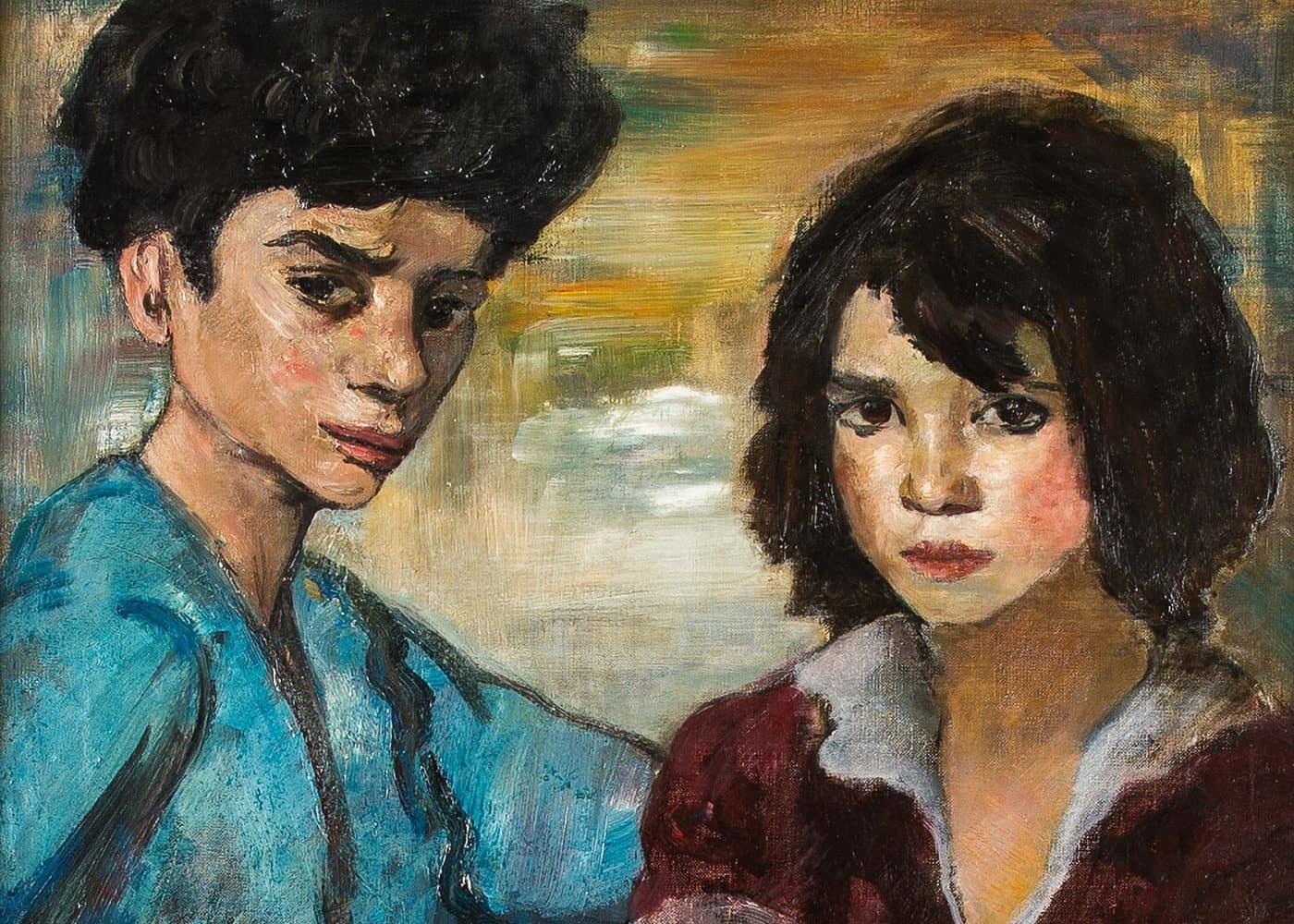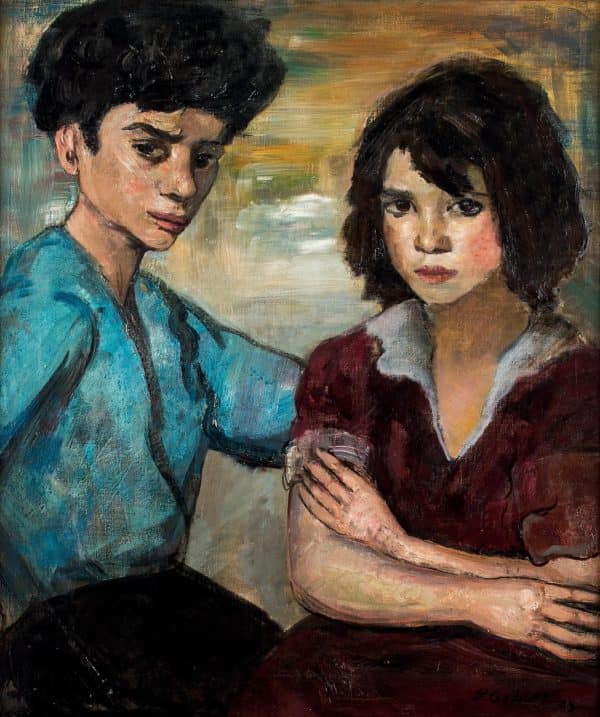

Bernhard Gobiet was born in Düsseldorf . After high school, he enrolled at the Düsseldorf Art Academy in 1911, but was drafted into the army in 1914. He was stationed on the Balkan Peninsula, from where he visited Constantinople, Asia Minor and Palestine. After the war, he returned to the Düsseldorf Art Academy and became a master student of August Deusser. In 1920, Gobiet won the Grand State Award. He thereafter went on numerous travels. From 1920 to 1926, he exhibited works several times at the Great Art Exhibition in Düsseldorf. He participated in exhibitions of the Young Rhineland, and in 1929 in the jubilee exhibition of the Rhine Secession. He became acquainted with Otto Dix. Gobiet’s oeuvre includes landscapes, nudes and paintings of children whom he describes as “Gypsies”.
In 1937, his works were declared to be “degenerate” art and were confiscated. Nevertheless, Gobiet was still represented at that year’s Great Art Exhibition in Düsseldorf. A solo exhibition was devoted to his works at the Kunsthalle in Düsseldorf in 1940. He was drafted into the army in the final year of the Second World War, and was then taken prisoner. He was released, but died soon afterwards, on 20 June 1945.
